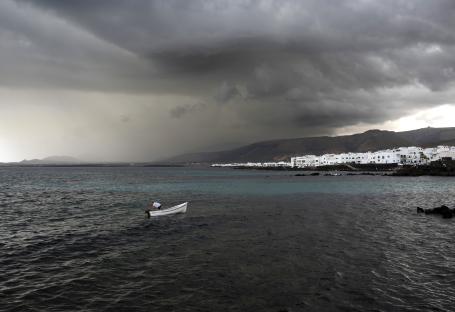British lawmakers on Thursday approved a parliamentary motion declaring that China’s policies against its Uyghur minority population in the far western Xinjiang region amounted to genocide and crimes against humanity.
The motion is non-binding and does not compel the British government to act. But it is another move signalling the growing outcry among U.K. politicians over alleged human rights abuses in China.
Read more: Vote passes recognizing China's treatment of Uyghurs as genocide
The motion was moved by Conservative lawmaker Nus Ghani, one of five British lawmakers recently sanctioned by China for criticizing its treatment of the Uyghurs.
“There is a misunderstanding that genocide is just one act — mass killing. That is false,”; she said, adding that all the criteria of genocide — an intention to destroy in whole or in part a national, ethnic, racial or religious group — “are evidenced as taking place in Xinjiang.”;
The U.S. government and the parliaments of Belgium, the Netherlands and Canada have accused Beijing of genocide, although Canadian Prime Minister Justin Trudeau has been reluctant to use the term.
More than 1 million people have been confined to camps in Xinjiang, according to foreign governments and researchers. Authorities there are accused of imposing forced labour, systematic forced birth control and torture in mass internment camps.
The Chinese government has strongly rejected complaints of abuses and says the camps are for job training to support economic development and combat Islamic radicalism. The government is pressing foreign clothing and shoe brands to reverse decisions to stop using cotton from Xinjiang due to reports of possible forced labour there.
Prime Minister Boris Johnson has faced increasing pressure from within his own Conservative government to take a tougher stance against Beijing over human rights abuses.
British parliamentarians have repeatedly tried to push through a bill aiming to give the High Court the right to decide whether a country is committing genocide — and ultimately block U.K. trade deals with China — but the moves were defeated by the government. Johnson has warned against a “Cold War mentality”; towards China and maintained it’s important to nurture partnerships with Beijing.
Last month Britain, alongside the European Union, Canada and the United States launched coordinated sanctions against a handful of officials in China over the Uyghur issue, provoking swift retaliation from Beijing.
British Foreign Secretary Dominic Raab said the measures were part of “intensive diplomacy”; to force action amid mounting evidence about serious rights abuses against the Uyghur Muslim people.





